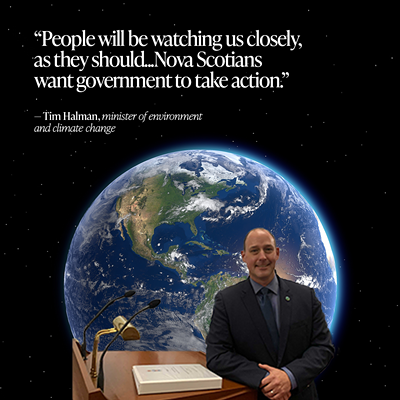When I interviewed Weaver in September, he told me that the UN conference on climate change to be held in Copenhagen in December was humanity’s “last chance” to avoid reaching irreversible climate change. “If agreement isn’t reached at Copenhagen, we might as well forget about it,” he told me at the time.
The Copenhagen conference concluded last week, so I called Weaver Monday to get his opinion.
“Disaster,” he says of the conference. “Let’s be realistic, Copenhagen was a failure. It was absolutely a failure. The people at the UN are trying to put on a brave face. We have leaders like Obama working with the Chinese and India to put forward a statement arguing that they’ll try to avoid [global warming to] two degrees, but the reality of the situation is, this is rhetoric. Frankly, you can kiss two degrees good-bye---you cannot on the one hand say we’re not going to have two degree warming and on the other hand take no measures to actually have aggressive reductions in greenhouse gas emissions.”
A global increase of two degrees Celsius above pre-industrial levels is considered the maximum increase in temperature the Earth can experience before reaching an irreversible “tipping point,” beyond which no human action can avoid increasingly cataclysmic climate change.
Weaver and other climatologists say that if the two degree warming is to be avoided, we’ll need to keep our greenhouse gas emissions to below an additional, cumulative 470 megatonnes. Presently, we’re emitting just over 10 gigatonnes annually---“that’s basically 47 years at current levels, immediately going to zero thereafter,” says Weaver, but we’re increasing, not decreasing, our emissions, “so we’re going to have less than the 47 years at current rates.”
As Weaver sees it, the last-minute agreement at Copenhagen cobbled together by Obama is less than meaningless. “The only thing that is going to come out of Copenhagen are promissory, aspirational targets that any country can report at the end of January, and they can report zero, they can say, ‘well, we’re going to grow by 50 percent,’ as China has agreed.
“The reality of the situation here is that global leaders have abdicated their responsibility,” he continues. “What’s clear is that society has not determined yet that we care about future generations, because if we care about future generations, then it’s necessary for us to act now, because global warming is really an issue of inter-generational equity.
“It’s just a very sad statement of humanity’s role on the planet. We are self-centered, and we care about the individual over the collective, in terms of the environment in which we live. We’re a selfish species, and this was clearly demonstrated in Copenhagen.”
With the failure of world leaders at Copenhagen, is there no hope whatsoever on the climate change front? What about broad popular movements?
“Yes,” answers Weaver. “That’s what I think we’ll see. The take-home message I take out of Copenhagen was the scale of civil society getting involved, and youth in particular. I think what we’ll see, and what I hope we’ll see, is the youth of today recognizing that those people who are elected to make decisions that will affect them are not bearing their interests in mind, and will get engaged in the political process. I’m hoping we’ll see widespread engagement of youth in the political process to actually elect those people who will listen to their voices.
“The problem with this thing, though, is it’s not going to happen overnight. It takes decades for the effects to manifest themselves, and you and I won’t be around then---that’s the problem.”















